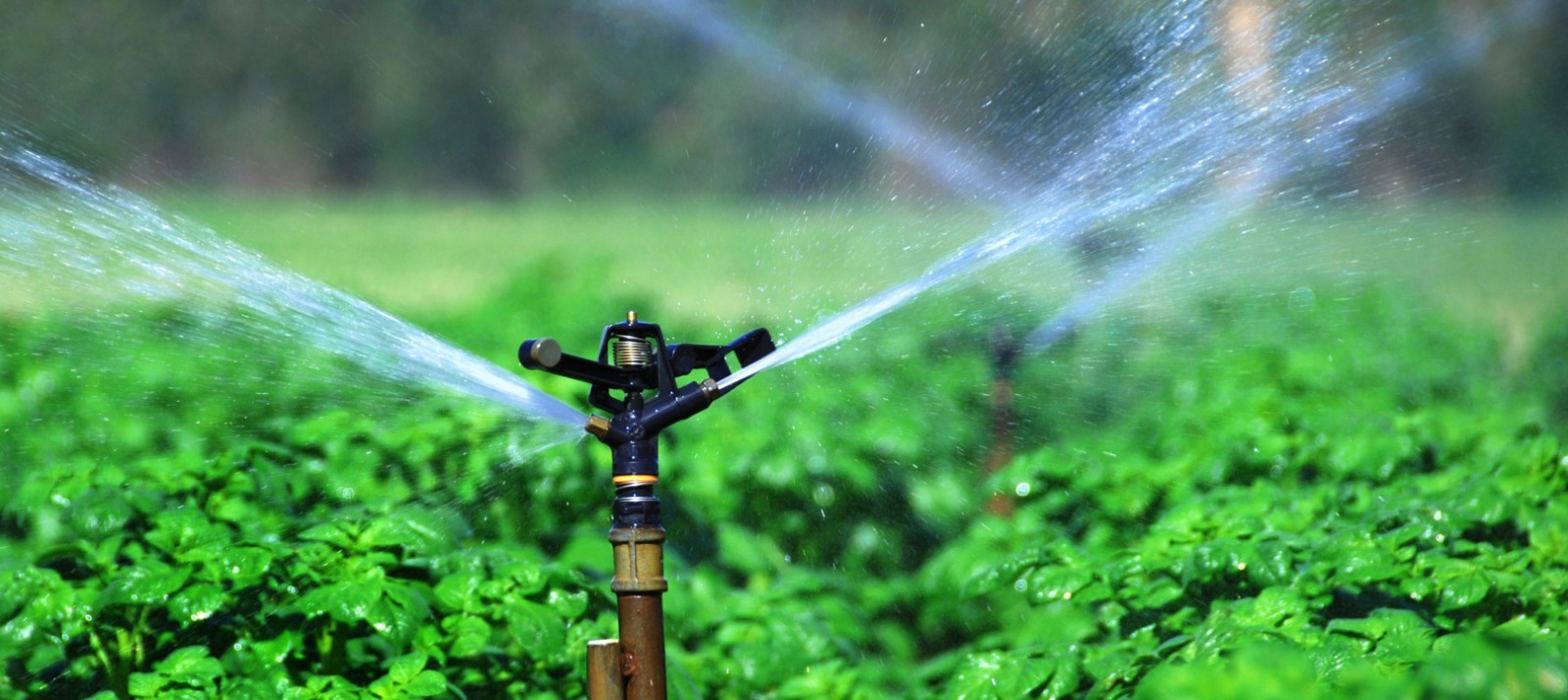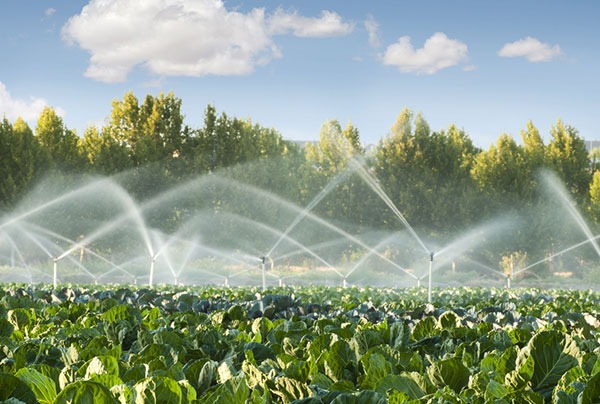Sprinkler irrigation is a method of applying irrigation water which is similar to natural rainfall. Water is distributed through a system of pipes usually by pumping. It is then sprayed into the air through sprinklers so that it breaks up into small water drops which fall to the ground.
Sprinkler irrigation is a method of irrigation in which water is distributed over the agricultural or landscape area in the form of droplets, simulating natural rainfall. Sprinkler systems consist of pipes, pumps, valves, and sprinkler heads that disperse water over the crops or vegetation. This irrigation method is commonly used in agriculture, sports fields, golf courses, gardens, and lawns. Here are some key features and benefits of sprinkler irrigation: Uniform Water Distribution: Sprinkler systems provide even and uniform water distribution over the entire irrigated area, helping to ensure consistent plant growth and crop yields. Time Efficiency: Sprinkler irrigation can cover large areas quickly, making it a time-efficient method for irrigating extensive agricultural fields or recreational areas. Flexible Application: Sprinkler systems can be adjusted to control the rate and pattern of water application, allowing farmers and gardeners to adapt to different crop types and landscape layouts. Reduces Heat Stress: In hot and dry climates, sprinkler irrigation can help reduce heat stress on plants by cooling the surrounding air and maintaining a more favorable microclimate. Minimizes Soil Erosion: By delivering water gently in the form of droplets, sprinkler irrigation helps prevent soil erosion that can occur with heavy runoff in some other irrigation methods. Frost Protection: In some cases, sprinkler systems can be used for frost protection by creating a protective layer of ice on sensitive plants, which releases latent heat and prevents freezing. Irrigation Automation: Sprinkler systems can be automated with timers and sensors, allowing for precise control of irrigation scheduling and reducing the need for constant manual monitoring. Aids in Seed Germination: Sprinklers provide gentle moisture, which can help facilitate seed germination and establishment of new plantings. Suitable for Various Terrains: Sprinkler systems can be adapted to different terrains, including flat surfaces and slightly uneven landscapes. Minimizes Water Waste: Well-designed and properly maintained sprinkler systems can minimize water waste by avoiding overwatering and targeting water where it is needed most. While sprinkler irrigation offers many benefits, there are also some considerations to keep in mind. Wind can affect the uniformity of water distribution, leading to uneven coverage in some cases. Also, compared to more water-efficient methods like drip irrigation, sprinkler systems may have higher water losses due to evaporation and wind drift. However, proper system design, maintenance, and water management practices can help mitigate these challenges and make sprinkler irrigation an effective and practical irrigation option for a variety of applications.


